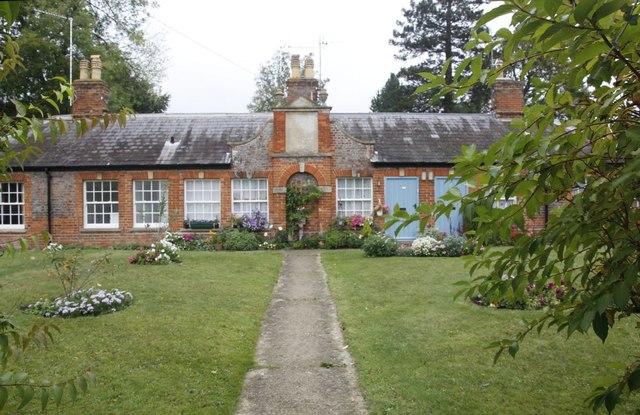
We start this review of the Almshouses of the Vale of the White Horse District in Wantage, where there are three sets of Almshouses. The first are in Mill Street: a set of Almshouses dating from 1868-71, with what Pevsner describes as "vestigial Gothic detailing".
Then, in Post Office Lane, are the attractive Eagles' Close Almshouses of 1867, by Edward Dolby.
Nearby in Newbury Street are the Stiles Almshouses of 1680. Their
founder was Robert Stiles, a merchant of Amsterdam: the plaque over the
doorway describes his gift. It was Wantage's first named building.
Heading North East you come to the Almshouses in Church St, Sutton Courtenay. They were built in 1820 under the will of Francis Elderfield. It seems that the original six almshouses are now four.

Heading north we come to Fyfield where the The White Hart Inn once an
almshouse and, according to Pevsnser, is a remarkable survivor of a
chantry priest's house founded by Sir John Golafre in 1492.

Then
on to Abingdon which has no less than five sets of Almshouses. Entering
the churchyard of St Helen's, you are confronted by an
extraordinary sight of three sets of them: "No other churchyard
anywhere in England has anything like it" (Pevsner). On the right are
Twitty's Almshouses of 1707.
In front of you, are the extraordinary Long Alley Almshouses, which date from 1446. The front doors are accessed via a long pentice, or cloister walk.
To the left are the Brick Alley Almshouses, built for Christ's Hospital in 1718. The giant arches carry first floor balconies.
Further along, in Ock St, are the fourth set of almshouses: Tompkins's
Almshouses of 1733. The Dutch gables mark the ends of two ranges of
houses which face each other across a small but pretty courtyard.
Finally, there is the out-of-the-way Vineyard for the final set of Almshouses, St John's Hospital, re-established here in 1801.







No comments:
Post a Comment